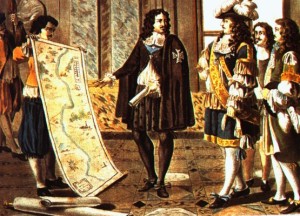Reflections on the Political Economy and Development of Ideas in Free Trade
Mercantilists formulated a system of political economy that put the strength of the state as the primary end. Economists supporting this doctrine, whether or not they realized, were defenders of the existing order. The mercantile system inverted the preference ordering appropriate for science, submitting the search for truth to some alternate end. Investigation was in the service of enriching and empowering the state and agents connected to it. Much as still occurs today, the status quo was the analytical point of departure. Objects of interest were not necessarily the primary elements of the economic and political order. Rather, they were the elements of interest to the reigning regime comprised of politically connected merchants.
Consider two manifestations of mercantilist doctrine: bullionism and protectionism. Both of these doctrines reflected a belief that a nation should have a positive balance of trade. In other words, the value of imports should exceed exports. Mercantilists believed that, whenever possible, monetary wealth should be kept within the nation. These beliefs reflected a political alliance between the emerging merchant class and the agents of the nation-state. Those comprising the merchant class were responsible for the enrichment of the state in the sense that they were a significant tax base. Not surprising, the two classes of actors developed ongoing relationships. Influential merchants wished to limit competition between themselves and foreign industry. They lobbied government in order to erect barriers to competition. One primary means was to implement tariffs on goods that competed with the domestic industry of interest. The government benefited by developing a tax base. The merchants benefited by increasing their hold on the market and receiving a higher price and greater demand for their own goods as a result. In this game, there was a third class that lost from this relationship: those who were forced to pay higher prices for goods whether due to taxes or quotas. To counteract these costs, those who were impeded by these regulations moved their activity to the black market. Though impeded by higher costs, international trade could not be stopped by government.
In retrospect, most economists see mercantilism as a relic. Out of fashion as it may be, mercantilism did serve the development of economic thought. Even if mercantilism was wrong in many ways, it provided a place for conversation. It is no coincidence that Adam Smith’s Wealth of Nations was not only a tract on positive economics but also a cry against the mercantilist elements that dominated policy at the time. Although economic ideas generated by mercantilism were perverted by ends encouraged within the political climate, redemption of economics as a discipline was not far from reach. The right ideas were already in the air. Smith and those who followed him stood on the shoulder of giants. Though the ideas of these giants in some ways deviated from the economic reality that underlies all social activity, the lineage of ideas, of which they comprise in part later came to converge on truth. Improvement came from the Smithian line, which includes French physiocrats and philosophers of the Scottish enlightenment as predecessors. It came from scholars who were not swayed by mercantilist doctrine.
Mercantilist elements are still embedded in modern conversation, for example, as protection for domestic workers or under a guise of maintenance of culture. In recent decades, however, these have had a limited impact on policy. Despite the rhetoric, policymakers and the public have come to realize the benefits of exchange across national boundaries. A majority of Americans support the expansion of free trade. I was surprised to learn that support for free trade comes most heavily from those on the left (here and here). Still, there are imperfections in understanding of free trade. Americans seem to be less optimistic concerning the effect of trade on jobs and, reasonably so, job security. Still, these numbers represent a substantial improvement compared to the time of Smith. The ideas generated from the mainline of economics – the Smithian line – have exerted tremendous influence and improved our world in the process.

